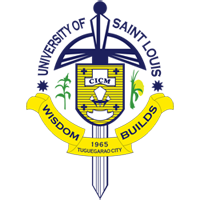
Dr. Eladio Martin S. Gumabay, head of the University of Saint Louis’ (USL’s) Center for Health Research and Development (CHRD), attended the Second Career/ Adult Education Training Program for Philippine Higher Education Institutions (HEIs) at the University of Toronto – Ontario Institute for Studies in Education (UofT-OISE), Ontario, Canada, Aug. 11-25, 2018.
 The program was organized and funded by the Philippine Commission on Higher Education (CHED) in collaboration with the Canadian Bureau for International Education (CBIE).
The program was organized and funded by the Philippine Commission on Higher Education (CHED) in collaboration with the Canadian Bureau for International Education (CBIE).
Themed “Meeting the Emerging Needs of Adult Learning Professionals,” the training aimed to facilitate continuing and professional learning, specifically, the establishment of Adult Education (AE) program in the Philippines.
The training, which was second of AE training held in Canada for Filipino educators, catered to eight CHED regional directors and other designated officials and 15 delegates from HEIs.
AE curriculum
“Adult education is intended for adults who are basic education completers that seek further achievement of relevant knowledge, skills, attitudes, and values. The program is geared towards (1) enabling people, (2) expanding opportunities, (3) enhancing employability, and (4) ensuring sustainable communities towards the attainment of better quality of life,” Dr. Gumabay said.
“An adult learner whose purpose is to upskill, reskill or cross-skill may engage in formal, nonformal or informal modes of learning to acquire qualifications towards developing enabled people, expanded opportunities, enhanced employability, and sustainable communities. Qualifications may be achieved through recognition of prior learning, equivalency of credits, and certification of skills and work experiences,” quoted Dr. Gumabay from “Sikhay,” a working document prepared by the two batches of AE trainees.
For Adult Education to be effective, involvement of industry partners and the need for them to be part of the composition of the faculty lineup were emphasized.
“The direction for adult education is premised on environmental scanning to determine clientele needs, labor market information, industry needs, community, local and regional demands substantiated by studies, research, and reports on needs analysis of industry, academe and community,” also from “Sikhay.”
The trainees had a glance on the academic plan and the alumni association involvement in the programs of University of Toronto – Ontario Institute for Studies in Education (UofT-OISE), which has its Continuing and Professional Learning (CPL) program, the university’s AE program.
A discussion on instructional design evaluation was also part of the training.
Resource persons from eCampus Ontario, Sheridan College, and Postsecondary Education Quality Assessment Board (PEQAB) discussed their online platforms, certification and recognition programs, and QA system dynamics, respectively.
The trainees had site visits at York University School of Continuing Studies, Ryerson University, and TV Ontario (TVO). The trainees also had training sessions with speakers from Seneca College, George Brown College, and the Canadian Ministry of Education.
 AE in the Philippines
AE in the Philippines
The training delegates expect approval of the AE program by the CHED Commission en banc by Dec. 2018 and the conduct of national training for trainers in Feb. 2019. Thereafter, each institution shall decide on its track, curriculum design, and AE implementation.

